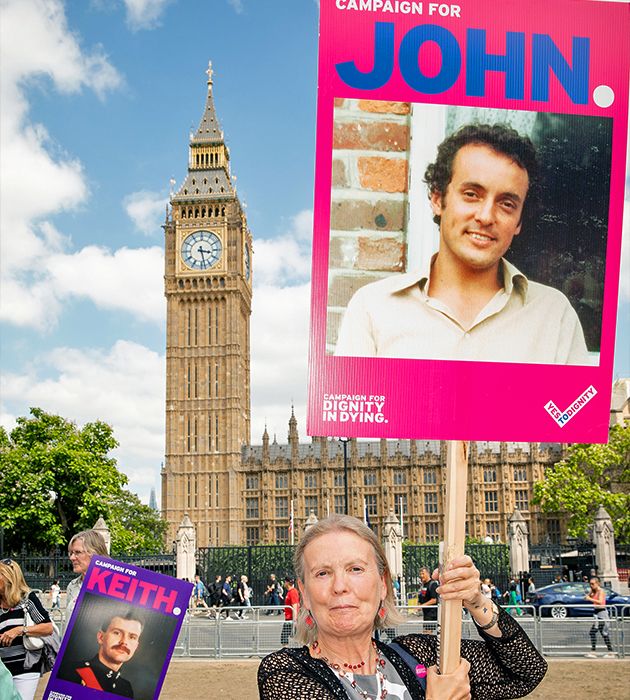
John Close
In 2001 my brother John Close, aged 53, was diagnosed with Motor Neurone Disease (MND). His decline was slow but, by Christmas 2002, he needed full-time care: he could not stand or swallow, and communicated through a computer because his speech was unintelligible.
John saw a news item about Reg Crew’s trip to Dignitas in January 2003 and said “that’s how I’d like to go when my time comes.”
I immediately understood why John wanted an assisted death – it allowed him to choose a death which was guaranteed to be peaceful and dignified.
Opponents of assisted dying have suggested that I should have stopped him – what would John have gained from my selfish insistence that he continue suffering until MND ended his life ‘naturally’?
Knowing that John would be in control of his death was a tremendous source of comfort for me as well as for John. Indeed at a stage when MND had almost totally eroded his dignity, knowing he would have that control gave some dignity back to him. John’s death was sad but my grief at losing him was tempered by the control he had over the way he died. Having said our goodbyes, I held his hand as the barbiturate overdose took effect: he fell into a deep sleep which was followed by unconsciousness and, after 20 minutes, death.
If legislation such as Lord Joffe’s had existed in 2003, John might have lived for a few weeks longer: he needed some bodily strength to undertake the journey to Zurich. I wish he had been able to die the same peaceful and dignified death at home in Milton Keynes, as the sun set, and with his own GP writing the prescription. That GP, Eric Rose, spoke to the BMA a few weeks after John’s death and said that knowing John had changed his opinion about assisted dying.
That is John’s legacy: it is proof that a personal experience, such as knowing John, can turn opposition based on theory alone into whole-hearted support.